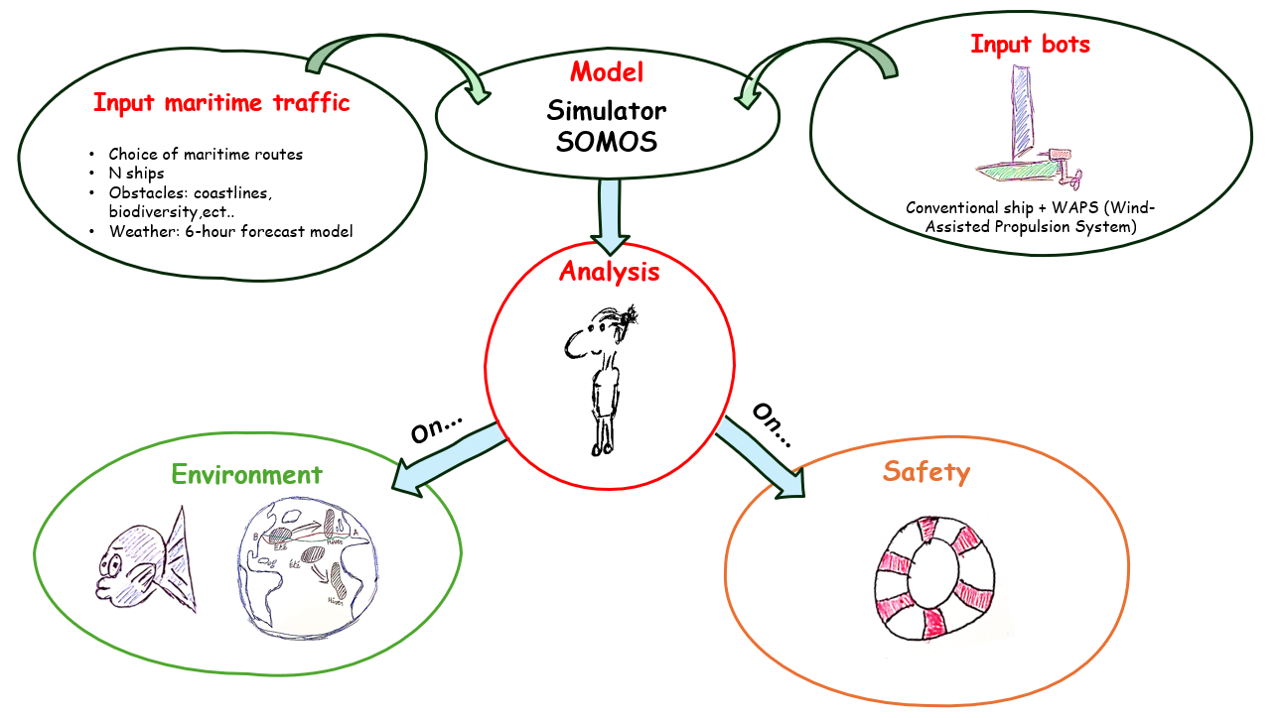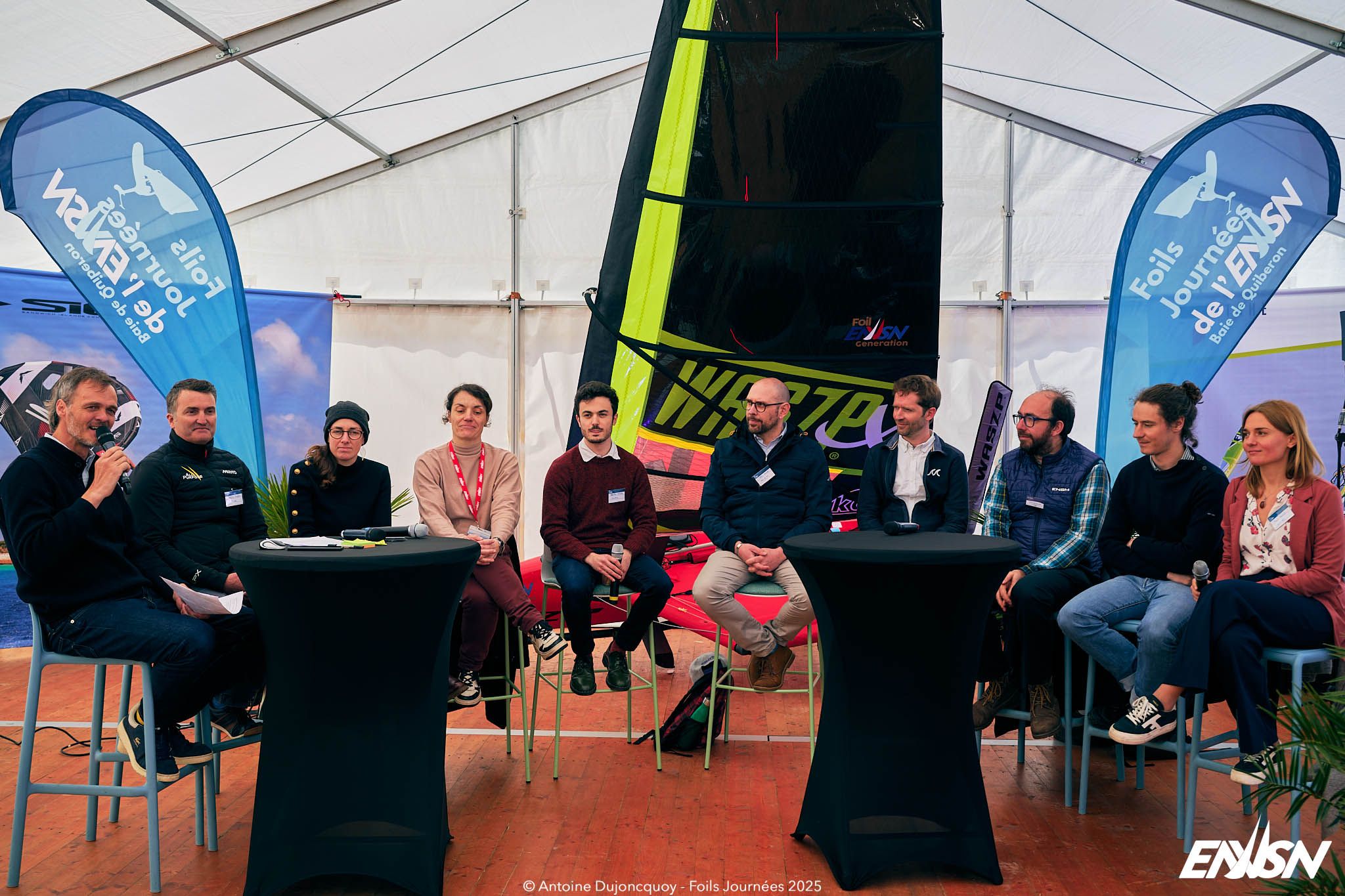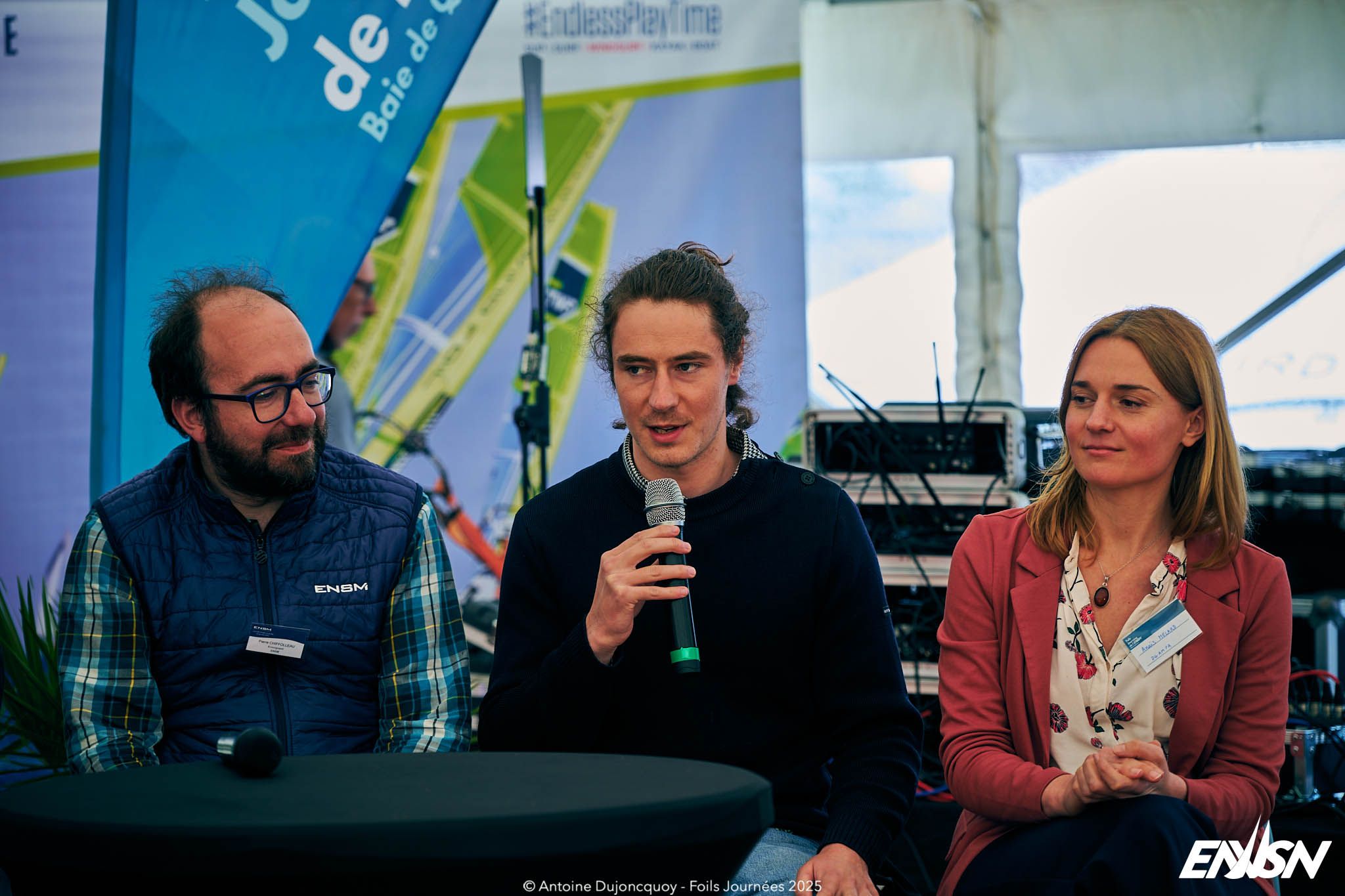Presentation of the Thesis Topic
Two recent prospective studies carried out for the European Commission and the United Kingdom’s Department for Transport (ADEME, 2022) have estimated that wind-assisted propulsion systems could equip up to 45% of commercial vessels by 2050.
These technologies, referred to as WASP (Wind-Assisted Ship Propulsion), encompass a wide range of solutions—such as rigid sails, kites, or Flettner rotors—that harness wind energy to optimize vessel performance. Their purpose extends beyond merely reducing fuel consumption; they also aim to maximize overall efficiency and minimize the environmental footprint of ships. As illustrated by the SOMOS thesis diagram below, this thesis focuses on analyzing the impact of integrating auxiliary wind propulsion technologies on the organization and monitoring of maritime traffic.
These SOMOS, martin Hochhausen :

IAs part of the SOMOS project (SOlveur MOdulaire et Simulateur de navires à propulsion vélique), this work combines a mathematical and optimization-based approach with operational considerations in the field, thus justifying a close collaboration between these two institutions: ENSTA (École Nationale Supérieure de Techniques Avancées) and ENSM (École Nationale Supérieure Maritime). The study relies on numerical models and simulators to examine the impacts of using these technologies in two major areas:
Environnement :
Analyze the effects of route changes induced by these technologies on marine biodiversity and their role in reducing greenhouse gas emissions.
Safety :
Study the risks of collisions with other vessels or sensitive areas, the influence on ship maneuverability, as well as variations in response times in the event of an incident.
By exploring these dimensions, this thesis aims to provide concrete recommendations for the effective integration of auxiliary wind propulsion technologies into maritime transport, balancing economic performance, environmental sustainability, and safety.
First presentation at the « Foils Journées » at the National Sailing and Nautical Sports School (ENVSN)


On March 28, 2025, during the Foils Journées at ENVSN, I had the opportunity to meet with key French stakeholders in wind-assisted propulsion: Wind Ship, Grain de Sail, MerConcept, All Purpose Voilerie, ENSM – École Nationale Supérieure Maritime, DGAMPA – Directorate General for Maritime Affairs, Fisheries and Aquaculture, and Le Caboteur des Îles.
These discussions provided an overview of the current state of wind-assisted propulsion, both nationally and globally, and highlighted the development prospects of these technologies in the maritime transport sector.